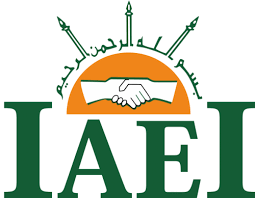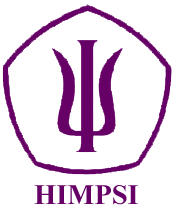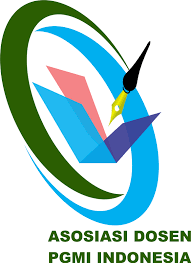PERAN MUDIR DALAM MEMBINA SANTRI MENJADI KADER ULAMA DI PONDOK PESANTREN DARUL AMIN PASAMAN BARAT
DOI:
 https://doi.org/10.37859/jsi.v8i01.9161
https://doi.org/10.37859/jsi.v8i01.9161
Abstract
Islamic Boarding Schools play a crucial role in producing future Islamic scholars (ulama) who not only master religious knowledge but also possess moral integrity and leadership qualities. However, challenges such as the lack of generational succession among mudirs (pesantren leaders) and the influence of globalization hinder the effectiveness of the cadre development process. This study aims to analyze the strategies employed by mudirs in nurturing students (santri) into future ulama, identify supporting and inhibiting factors, and formulate an adaptive leadership model for pesantren. Using a qualitative case study approach, data was collected through in-depth interviews, participatory observation, and document analysis at Darul Amin Islamic Boarding School in West Pasaman. The findings reveal that mudirs serve as curriculum designers, motivators, and role models, employing key strategies such as exemplary behavior, habituation, and personal mentoring. Cadre development programs including multilingual sermons (ceramah), Qur’an memorization (tahfiz), and practical da’wah training prove effective in shaping students' competencies. The main challenges include limited human resources, funding constraints, and geographic isolation, with solutions focusing on recruiting qualified teachers, stakeholder partnerships, and leveraging technology. The study concludes that Islamic values-based transformational leadership by mudirs is the key to successful ulama cadre development. The implications highlight the need to strengthen a holistic leadership model in pesantren and integrate traditional and modern approaches to address challenges in the digital era.
Downloads
References
Aisyah, S., Ilmi, M. U., Rosyid, M. A., Wulandari, E., & Akhmad, F. (2022). Kiai Leadership Concept in The Scope of Pesantren Organizational Culture. Tafkir: Interdisciplinary Journal of Islamic Education, 3(1), 40–59. https://doi.org/10.31538/tijie.v3i1.106
Akmansyah, M., & Nurnazi. (2024). Enhancing Islamic Moderation in Pesantren: The Role of Kiai Exemplary, Curriculum, and Santri Activities. Islamic Review: Jurnal Riset Dan Kajian Keislaman, 13(2), 1–22. https://doi.org/10.35878/islamicreview.v13.i2.1329
Alduais, A., Abdullah, A., Meysam, A., & and Alizadeh Incheh, S. (2023). Neurolinguistics: A scientometric review. Cogent Arts & Humanities, 10(1), 2197341. https://doi.org/10.1080/23311983.2023.2197341
Andrianto, D., Kurniawan, W., & Mustofa, M. F. (2024). Penerapan Pembelajaran Kitab Kuning dalam Pendidikan Akhlak di Hidayatun Nasyi-ien Katibung Lampung Selatan. ACTION : Jurnal Inovasi Penelitian Tindakan Kelas Dan Sekolah, 4(3), 88–101. https://doi.org/10.51878/action.v4i3.4225
Apud, Sammali Bin Hj Adam, H., & Irawan, F. (2020). Kyai Leadership in Internalizing Nationalism Values At Pesantren. Jurnal Pendidikan Islam, 6(2), 153–164. https://doi.org/10.15575/jpi.v6i2.9687
Bandura, A. (1971). Social Learning Theory (Vol. 61). New York: General Learning Press. https://doi.org/10.18177/sym.2020.61.1.sr.11518
Bass, B. M. (1995). Theory of transformational leadership redux. The Leadership Quarterly, 6(4), 463–478. https://doi.org/https://doi.org/10.1016/1048-9843(95)90021-7
Bass, B. M., & Riggio, R. E. (2005). Transformational leadership: Second edition. In Transformational Leadership: Second Edition (Vol. 62). London: Lawrence Erlbaum Associates Publisher. https://doi.org/10.4324/9781410617095
Cayrat, C., & Boxall, P. (2023). The roles of the HR function: A systematic review of tensions, continuity and change. Human Resource Management Review, 33(4), 100984. https://doi.org/https://doi.org/10.1016/j.hrmr.2023.100984
Ersat, M., Patoni, A., Syafi’i, A., & Gautam Makwana. (2024). Kiai’s Leadership in Forming a Friendly Environmental Pesantren Culture At Sabilillah Islamic Boarding School Sampang Indonesia. International Journal of Business, Economics and Education Research, 03(01), 9–14. Retrieved from https://ijbeer.stieken.ac.id/index.php/ijbeer/article/view/20%0Ahttps://ijbeer.stieken.ac.id/index.php/ijbeer/article/download/20/20
Fauziah, R., Ritonga, M., & Alrasi, F. (2020). Korelasi Tsiqah Tahfidz Al-Qur’an Dengan Maharah Al-Lughah Al-‘Arabiyyah Mustawa Tsalits Ma’Had Az-Zubair Bin Al-Awwam. El-Tsaqafah : Jurnal Jurusan PBA, 19(1), 25–36. https://doi.org/10.20414/tsaqafah.v19i1.2342
Firmansyah, SA, R., & Munir. (2024). The Urgency of Social Ethics in Santri Tradition at Muhammadiyah’s Pesantren. Tafkir: Interdisciplinary Journal of Islamic Education, 5(1), 153–170. https://doi.org/10.31538/tijie.v5i1.991
Harianto, H., Ritonga, M., & Saputra, R. (2021). How is the Ability of Islamic Religious Education Teachers in Designing and Using ICT Media? Proceedings of the 1st International Conference on Education, Humanities, Health and Agriculture, ICEHHA. https://doi.org/10.4108/eai.3-6-2021.2310749
Ilham, I., & HT, S. (2020). Konsep Metode Halaqah Dalam Pembelajaran Pai Dan Budi Pekerti. KREATIF: Jurnal Studi Pemikiran Pendidikan Agama Islam, 18(2), 113–125. https://doi.org/10.52266/kreatif.v18i2.464
Iman, N., Ikhwan, A., & Fadilah, N. H. (2023). The Kyai’s Strategy to Develop Cadres with Islamic Characters. Tadris: Jurnal Keguruan Dan Ilmu Tarbiyah, 8(2), 445–461. https://doi.org/10.24042/tadris.v8i2.18145
Jauhari, M. I., Kholid, I., & Sai’in, D. (2024). Visionary and Charismatic Leadership of Kiai in Driving Social Change. Journal of Pesantren and Diniyah Studies, 1(2), 175–184. Retrieved from https://jurnal.lppdjatim.org/jpds
Julhadi, & Ritonga, M. (2023). Human Resource Management in Islamic Educational Institutions to Improve Competitiveness in Society 5.0 Era. International Journal of Sustainable Development and Planning, 18(2), 611–619. https://doi.org/10.18280/ijsdp.180231
Munzir, Lubis, L., & Arsyad, J. (2023). Strategi Dayah Salafiyah Dalam Mencetak Kader Ulama Di Era Modern. Edukasi Islami: Jurnal Pendidikan Islam, 12(4), 967–982. https://doi.org/10.30868/ei.v12i04.5508
Muslih, & Sa’ada, L. Z. (2020). Manajemen Pengembangan Kurikulum Berbasis Pesantren Untuk Meningkatkan Mutu Pendidikan Di SMP Negeri 2 Paciran Lamongan. MUDIR: Jurnal Manajemen Pendidikan, 2(1), 1–10. Retrieved from http://ejournal.insud.ac.id/index.php/mpi/index
Muslimah, I. (2016). Kepemimpinan Kiyai Pondok Pesantren. Jurnal Isema: Islamic Educational Management, 1(2), 54–61. https://doi.org/10.15575/isema.v1i2.5180
Nabila, A. Z., Farid, A., Magfiroh, S. Z., Hafizhah, N. Z., & Khomsah, M. N. (2024). 21st Century Skills Development in Modern Pesantren. Journal of Multidisciplinary Sustainability Asean, 1(3), 11–17. https://doi.org/10.70177/ijmsa.v1i3.1124
Nur, M. A., Antariksa, W. F., & Wahyudin, A. (2024). The Influence of Kiai Leadership, Pesantren Culture, and Information Technology on Santri Loyalty. Al-Hayat: Journal of Islamic Education (AJIE), 8(4), 1348–1365. https://doi.org/10.35723/ajie.v8i4.65
Nurhayati, A. (2013). Pesantren Sebagai Institusi Total Pendidikan. Retrieved from https://api.semanticscholar.org/CorpusID:165022760
Refinal, Ritoga, M., Rusydi, & Saputra, R. (2025). Epistemology of Knowledge : Bridging Western and Islamic Thought. Solo International Collaboration and Publication of Social Sciences and Humanities, 3(1), 95–110. https://doi.org/10.61455/sicopus.v3i01.250
Ritonga, M., Bustami, H., Saputra, R., Hakim, R., Mursal, Elhusen, S. K., & Marlius, Y. (2020). Reformulating the arabic language teaching materials within the framework of generating new cadres of Tarjih and Tajdid Ulama. International Journal of Advanced Science and Technology, 29(7 Special Issue), 185–190.
Samsu, S., Kustati, M., Perrodin, D. D., Ritonga, M., Kosim, M., Rusmini, R., & Suwendi, S. (2021). Community empowerment in leading pesantren: A research of Nyai’s leadership. International Journal of Evaluation and Research in Education, 10(4), 1237–1244. https://doi.org/10.11591/IJERE.V10I4.21833
Samsuddin, Iskandar, Agusman, Mariyanto, & Shamsul, N. (2024). The Concept of Knowledge Transmission in Ibn Taimiyah’s Thought: A Study of Revelation, Reason, and the Senses as Knowledge Channels in Islam. Islamic Studies in the World, 1(2), 68–82. https://doi.org/10.70177/islw.v1i2.1268
Zuhri, Z. (2018). Kepemimpinan Visioner Kiai dalam Mengimplementasikan Visi di Pondok Pesantren. Bidayatuna: Jurnal Pendidikan Guru Mandrasah Ibtidaiyah, 1(2), 109. https://doi.org/10.36835/bidayatuna.v1i2.325
Zulmuqim, Zainimal, Kustati, M., Adriantoni, & Refinaldi. (2020). The characteristics of pesantren in the development of islamic education in west sumatra. Ulumuna, 24(1), 132–154. https://doi.org/10.20414/ujis.v24i1.382






